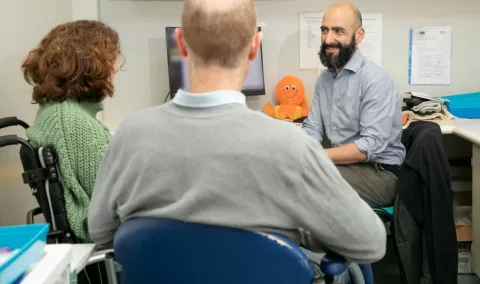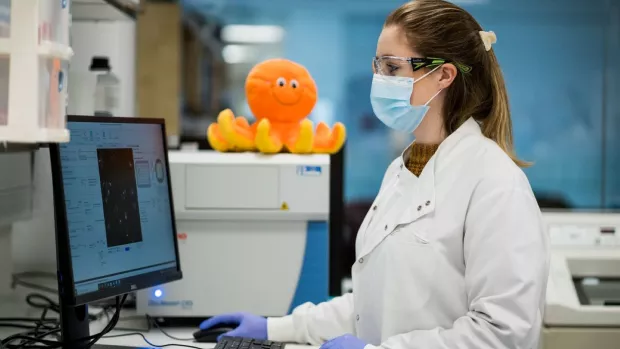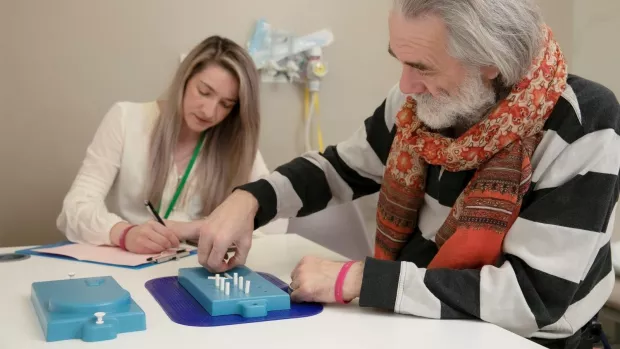
Octopus trial one step closer to launch
Octopus is a new clinical trial for primary and secondary progressive MS. After some delays, it’s now had the official thumbs up from the regulators. This important milestone brings us another step closer to the trial getting started.
Octopus is funded by us and led by Professors Jeremy Chataway and Max Parmar at University College London.
Its goal is to find treatments that slow or stop disability worsening. And its unique design means we can test potential treatments more efficiently.
Now they’ve got this approval, the team can confirm the first treatments they’ll be testing. And they hope to open the trial in the New Year.
What are the first drugs being tested?
After a rigorous process, the team have selected two existing drugs to test first: metformin and alpha lipoic acid.
Find out how these drugs were chosen
Evidence from the lab suggests both drugs may have potential to help protect nerves. Metformin has shown potential for boosting myelin repair too, so we’re currently funding a small trial testing this in relapsing MS as well.
Both drugs are used in other conditions. Metformin is approved for diabetes in the UK. And alpha lipoic acid is approved in Germany for neuropathy.
Some versions of lipoic acid are available as dietary supplements. But they’re not the same as the version used in research. It’s not always clear how they’re made or what they contain. And taking these supplements might mean you can’t join a trial.
Why do we need to test these drugs in a clinical trial?
We don’t yet know the effect of these drugs on MS. We need Octopus to tell us whether they’re effective at slowing disability progression. And if they have side effects.
Without large clinical trials showing a drug is safe and effective, treatments can’t be licensed and made available on the NHS.
A carefully controlled clinical trial is the safest way for people to take unproven drugs. The drugs themselves are designed to be exactly the right formula and dose. And your health is closely monitored by a team of neurologists and MS nurses.
Read Alison’s experience taking part in the MS-STAT2 clinical trial
How can people with MS take part?
The team is hoping to recruit at least 1200 people with progressive MS to take part in Octopus. People will join the trial gradually over the next six years. So there’ll be lots of opportunity to get involved.
University College London Hospital will be the first site to start screening potential participants, early next year. And there’ll be sites opening around the UK, including in Scotland, Wales, Yorkshire, the West Midlands and Hampshire.
If you’re interested in taking part in this or other clinical trials, talk to your MS team. You can also register your interest in Octopus through the UK MS Register.
When will we know the results?
We won’t know if these drugs slow disability progression until 2028 at the earliest. This is because Octopus is combining what would normally be two separate trials into one.
So in the meantime, we’ll be watching out for the results of other exciting trials for progressive MS, including:
-
Professor Chataway’s phase 3 MS-STAT2 trial
-
The phase 2 ChariotMS trial
-
The drug company Sanofi’s trials of a new drug called tolebrutinib
These results are all expected by the end of 2025, thanks to the many wonderful people taking part over many years.
Read the paper on how treatments are selected on the BMJ's website




